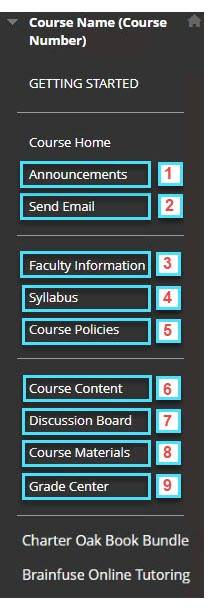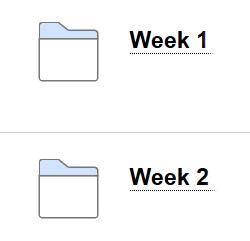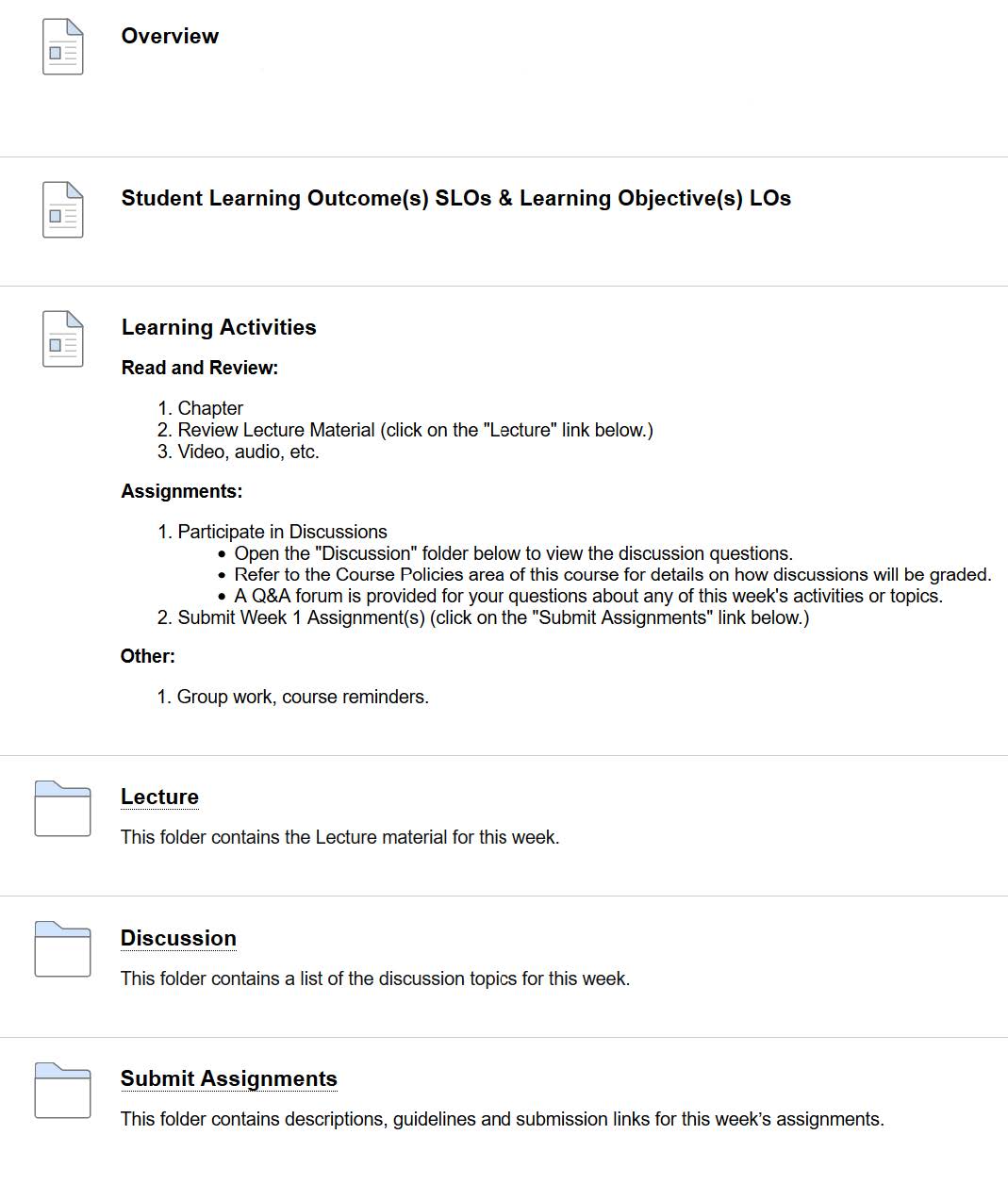Computer Skills and Technology Requirements
Computer skills required:
You should be familiar with the layout of Blackboard and know how to do the following common tasks:
- Check announcements
- Post to the discussion board
- Submit an assignment
- Check the Grade Center*
All of these tasks are covered in Charter Oak's free Student Orientation course. If you have not yet taken it, you can self-enroll from the Blackboard welcome page. The information appears below "My Courses" which is the list of courses you are enrolled in. The Student Orientation course is always available to you once you enroll.
*The Connecticut State Colleges & Universities (CSCU) Intructional Technology team created a helpful video entitled, How Students Check Grades and Instructor Feedback on Assignments.
The Blackboard Learn Help for Students website linked here can also be useful for students who have questions about how to complete common Blackboard tasks. Video tutorials provide guided how-to instructions on a wide range of common issues including:
- Finding, opening, or submitting an assignment
- Emailing other users
- Taking a test
- Getting grades
- Using the discussion board.
You can also always find links to Blackboard Tutorials and Technical Support in the Charter Oak Blackboard top menu.
Computer and mobile device requirements:
Charter Oak is using the "Original" environment of Blackboard, also known as Blackboard Learn. Here are Blackboard's recommendations for compatible technologies:
- Check information about Blackboard tested devices, operating systems, and recommended browsers
- Information about the Blackboard App for mobile devices
Where to Find Course Components
Before your course begins, it's a good idea to locate the following nine (9) key course components and learn more about them.

Course Components to Read and Reference:
1. Announcements: This is where you will find announcements from your instructor. You may find announcements that have been posted for you to read before the course starts.
2. Send Email: This link opens the tool for sending emails from Blackboard to members of your class and your instructor.
3. Faculty Information: This link opens a page with information about your instructor, usually with a brief bio, how you can reach your instructor during the course, and how long it will typically take your instructor to provide you with a response.
4. Syllabus: The course syllabus link opens your online course syllabus. The syllabus is a map of the course, providing a description, course outcomes tied to weekly assignments, and information about how you will be graded. You may want to reference the syllabus frequently to check assignments; you can print a copy if you prefer.
5. Course Policies: These are the guidelines and rubrics for this course that your instructor has developed. The guidelines inform you about late work or missed assignments and expectations for participation. Rubrics are provided to help you understand how you will be assessed on different assignments. There is usually a rubric for each major assignment type. A best practice is to view the rubric before you begin the assignment.
Course Components you will interact with frequently:
6. Course Content: The Course Content page contains links to each week of the course. You will find all the content and assignments for each week by clicking on the name of the week from the Course Content page. Some instructors choose to release the weekly content incrementally so you may not see all of weeks at first.
7. Discussion Board: The Discussion Board link takes you to a page that shows you all the discussion forums for the course including the Q & A forum. You will also find links to discussion forums assigned for each week within the Course Content link for each week. As with the weekly Course Content links, some instructors may release the discussions by date.
8. Course Materials: This page includes important course resources and documents specific to this course. For example, if there is a course project or presentation, detailed instructions may be provided here as a document that you can download if you choose. You may also find instruction for lab assignments or papers.
9. Grade Center: The Grade Center is where you will find your grades for each assignment as well as your running grade for the course. You can confirm that your assignments were submitted here.
The Charter Oak Book Bundle link will take you to the college’s Barnes & Noble portal, where you can access your course texts.
Brainfuse Online Tutoring is a service available to all Charter Oak students. You can obtain help with your writing and other assignments.
Other Student Resources and College Policies (not shown above):
The Charter Oak Virtual Library, Writing Resources, and Accessibility Resources provide you with links to service and resource information to support you in all COSC courses. If you are a new student, you will want to review COSC Policies, the Plagiarism Policy, and the Attendance and Late Policies.
Clicking Course Content, you’ll most likely see something like this:

Note: Any time you see a folder or an underlined word or phrase, it is a link you can click on.
Within each week, you’ll find the following:

Within Discussion you will find the following:

This is a discussion forum. Simply Click the underlined title to go to that forum.
Within Submit Assignments you may find the following:

This is an assignment. It can be a written/text based assignment, or a project based one. Click the underlined title to submit your work.

This is a quiz/test. Click the underlined title to begin the quiz/test. Keep in mind that some quizzes/tests may be timed, and once you begin, the timer will continue to count down, even if you close the window.
Course Communications
- Announcements: Your instructor will send announcements throughout the course. It's a good practice to read announcements as soon as you see them, whether you receive them by email or in Blackboard. Announcements may provide information about weekly assignments, a change in an assignment, important news, etc.
- Discussions: You will use discussions in two ways; 1) To ask questions about assignments or the course with the Q & A forum, and 2) To engage in discussions about course topics with classmates and the instructor.
- Q & A forum: This forum is available in each week of the course. You are not required to post to the Q & A forum, but if you have a question about an assignment or some element of the course that you think other students may share or be able to answer, you can post here to get a quick answer. Your instructor will be checking the Q & A forum frequently, typically on a daily basis, and should respond to you promptly.
- Weekly Discussion forums: These forums will appear in the weekly content area. You may have one or more discussion forums within a week. Usually, for each discussion forum in a week, you will be expected to make an initial post by a mid-week deadline and respond to classmates and/or the instructor by the end of the week. Instructions will be provided in the Course Policies area of your course. You should also check Course Policies to see the Discussion Rubric so you will be clear on how your participation will be assessed.
- Email: You may use email to communicate with other students in this course and with the instructor. By clicking on the "Send Email" link on the left side course navigation menu, you can send messages from your course to course members' external Charter Oak email accounts without the need to switch to your email provider, such as Gmail or Yahoo. You can send emails to individual users or to groups of users. Email is a send-only tool in Blackboard. You don't receive emails in Blackboard.
Student Responsibilities and Netiquette
In order to succeed at Charter Oak in your role as a student, you’re expected to take an active role in your own learning.
While you are enrolled at Charter Oak, you are expected to:
- Know the policies and procedures about enrollment and matriculation and comply with them.
- Meet your financial obligations to the college on time.
- Know the policies of the college.
- Reach out to your academic advisor if you need assistance regarding course registration, personal issues, change of major, or other issues that are impacting your academic work.
- Ensure that you are enrolling in the courses needed. Double check so you are not taking a course that you already took or one that you don’t need. If when you go to register it says “repeat,” check with your advisor before you register for the course.
In your courses, you are expected to:
- Read the syllabus for each course and comply with its expectations.
- Above all, contribute actively to the learning environment (group work, peer reviews, etc.) for your own benefit and for your classmates’ benefit.
- Know the course policies.
- Complete your assignments on time. If you have questions about the assignments, contact your instructor. If an emergency arises that prevents you from doing your work on time, contact your instructor right away or contact your academic advisor.
- Participate in threaded discussions in a thoughtful way that contributes to the learning of the course content, both your own and your fellow students’.
- Know and abide by the conventions of “netiquette”.
- Understand the rules of academic honesty and abide by them.
- Reach out to your professor as your first point of contact if you have concerns about course content, grades, assignments, etc. If you can’t get a hold of your professor, you can contact your academic advisor.
At the end of your courses, you are expected to:
- Complete the course evaluation, providing feedback on the quality of the learning experience to the college and its staff and faculty. Your feedback will be used to improve the course for future learners.
A student who requires accommodations for a disability should:
- Contact the Office of Accessibility Services to begin the registration process. OAS@charteroak.edu
Class "Netiquette" for Online Learners
Respect fellow classmates. There is a great deal that we can learn from each other, but this cannot happen if students feel uncomfortable in class about speaking up (afraid that their ideas will be treated harshly or not listened to respectfully) or are worried about what will be said to them or about them once they do speak up. Make sure you do everything you can to make our classroom culture a comfortable learning environment for everyone in the class. We may have people from many different backgrounds in this class and people with many different levels of academic preparation. You should all feel comfortable and make each other comfortable with discussing the issues.
Use an appropriate tone of voice. Say what you need to say, but say it in an appropriate tone of voice--one that is respectful and calm. Sarcasm, heavily judgmental or confrontational comments break down good will and create an inhospitable classroom atmosphere. Bullying comments are inappropriate and unacceptable in this class. This is most important in a virtual classroom, where tone of voice is often difficult to read from the language on screen (although the use of emoticons helps reduce this difficulty in some ways). If you are able to be funny without offending others feel free to do so but please be careful.
Take responsibility for making this class successful. Ask yourself what you can do during each class discussion to move the class forward in a positive way.
